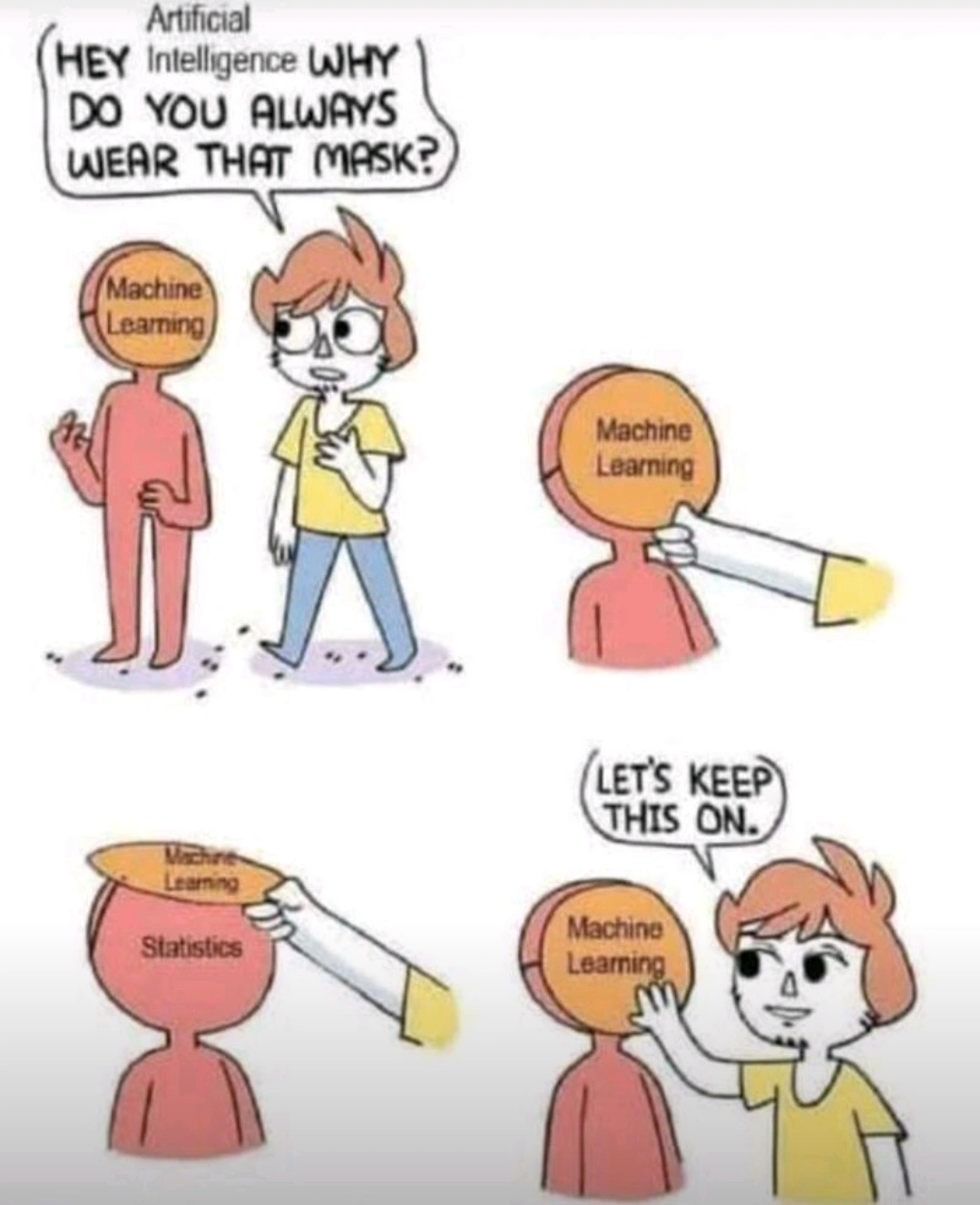this post was submitted on 08 Jul 2024
857 points (96.8% liked)
Science Memes
14549 readers
1027 users here now
Welcome to c/science_memes @ Mander.xyz!
A place for majestic STEMLORD peacocking, as well as memes about the realities of working in a lab.

Rules
- Don't throw mud. Behave like an intellectual and remember the human.
- Keep it rooted (on topic).
- No spam.
- Infographics welcome, get schooled.
This is a science community. We use the Dawkins definition of meme.
Research Committee
Other Mander Communities
Science and Research
Biology and Life Sciences
- !abiogenesis@mander.xyz
- !animal-behavior@mander.xyz
- !anthropology@mander.xyz
- !arachnology@mander.xyz
- !balconygardening@slrpnk.net
- !biodiversity@mander.xyz
- !biology@mander.xyz
- !biophysics@mander.xyz
- !botany@mander.xyz
- !ecology@mander.xyz
- !entomology@mander.xyz
- !fermentation@mander.xyz
- !herpetology@mander.xyz
- !houseplants@mander.xyz
- !medicine@mander.xyz
- !microscopy@mander.xyz
- !mycology@mander.xyz
- !nudibranchs@mander.xyz
- !nutrition@mander.xyz
- !palaeoecology@mander.xyz
- !palaeontology@mander.xyz
- !photosynthesis@mander.xyz
- !plantid@mander.xyz
- !plants@mander.xyz
- !reptiles and amphibians@mander.xyz
Physical Sciences
- !astronomy@mander.xyz
- !chemistry@mander.xyz
- !earthscience@mander.xyz
- !geography@mander.xyz
- !geospatial@mander.xyz
- !nuclear@mander.xyz
- !physics@mander.xyz
- !quantum-computing@mander.xyz
- !spectroscopy@mander.xyz
Humanities and Social Sciences
Practical and Applied Sciences
- !exercise-and sports-science@mander.xyz
- !gardening@mander.xyz
- !self sufficiency@mander.xyz
- !soilscience@slrpnk.net
- !terrariums@mander.xyz
- !timelapse@mander.xyz
Memes
Miscellaneous
founded 2 years ago
MODERATORS
you are viewing a single comment's thread
view the rest of the comments
view the rest of the comments

Idk. There’s something going on in how humans learn which is probably fundamentally different from current ML models.
Sure, humans learn from observing their environments, but they generally don’t need millions of examples to figure something out. They’ve got some kind of heuristics or other ways of learning things that lets them understand many things after seeing them just a few times or even once.
Most of the progress in ML models in recent years has been the discovery that you can get massive improvements with current models by just feeding them more and data. Essentially brute force. But there’s a limit to that, either because there might be a theoretical point where the gains stop, or the more practical issue of only having so much data and compute resources.
There’s almost certainly going to need to be some kind of breakthrough before we’re able to get meaningful further than we are now, let alone matching up to human cognition.
At least, that’s how I understand it from the classes I took in grad school. I’m not an expert by any means.
I would say that what humans do to learn has some elements of some machine learning approaches (Naive Bayes classifier comes to mind) on an unconscious level, but humans have a wild mix of different approaches to learning and even a single human employs many ways of capturing knowledge, and also, the imperfect and messy ways that humans capture and store knowledge is a critical feature of humanness.
I think we have to at least add the capacity to create links that were not learned through reasoning.
The difference in people is that our brains are continuously learning and LLMs are a static state model after being trained. To take your example about brute forcing more data, we've been doing that the second we were born. Every moment of every second we've had sound, light, taste, noises, feelings, etc, bombarding us nonstop. And our brains have astonishing storage capacity. AND our neurons function as both memory and processor (a holy grail in computing).
Sure, we have a ton of advantages on the hardware/wetware side of things. Okay, and technically the data-side also, but the idea of us learning from fewer examples isn't exactly right. Even a 5 year old child has "trained" far longer than probably all other major LLMs being used right now combined.